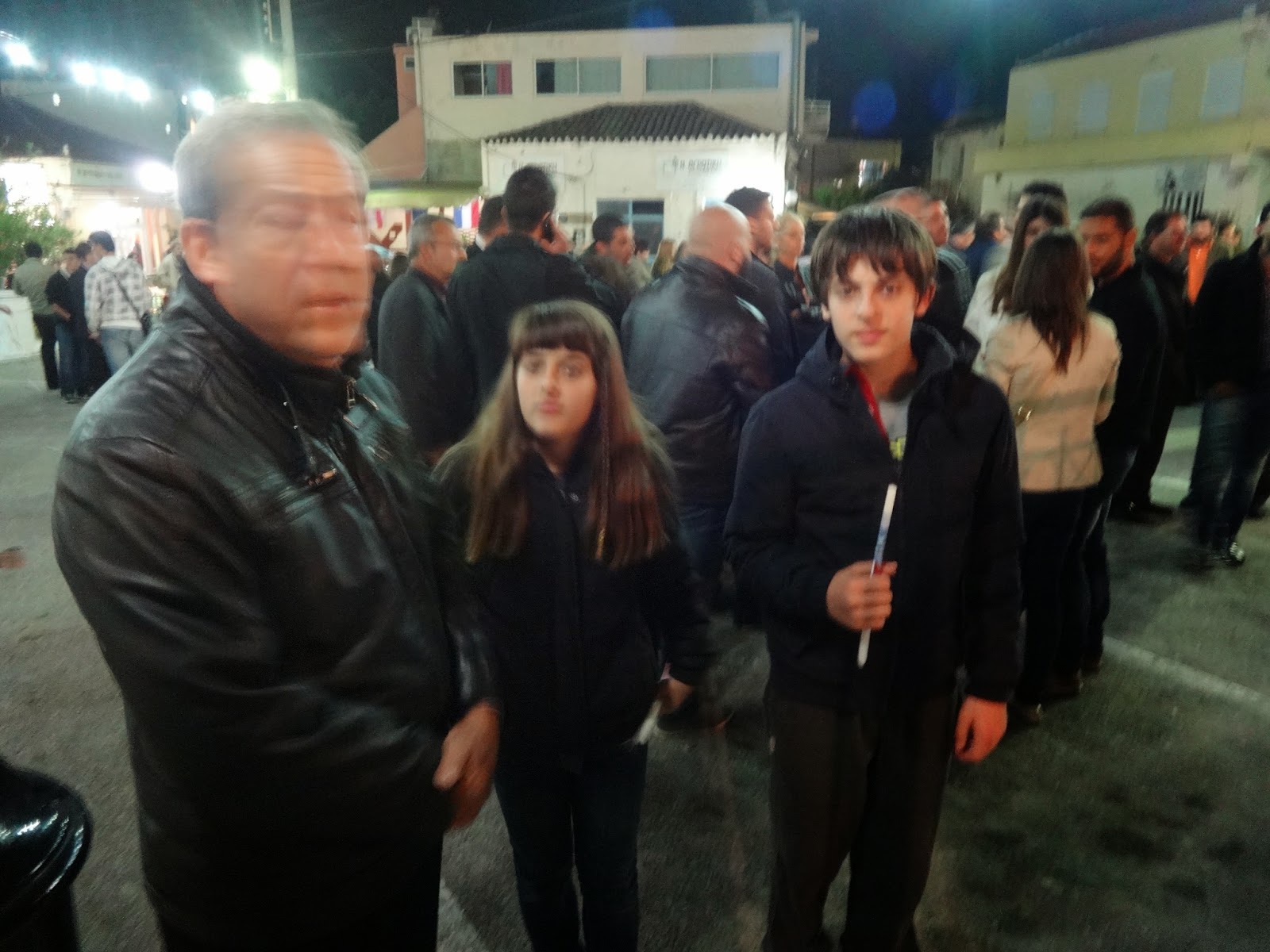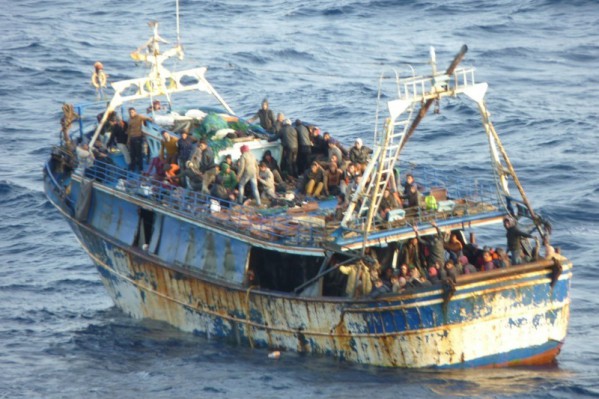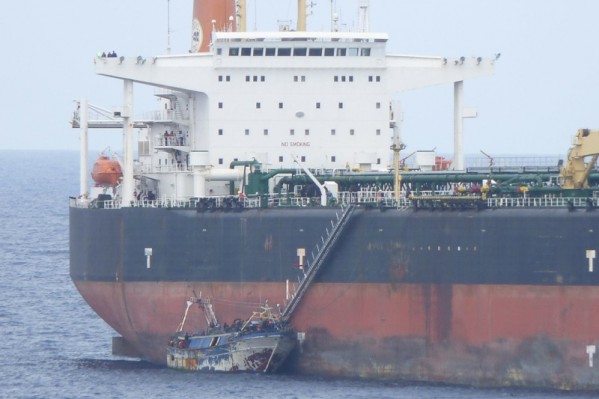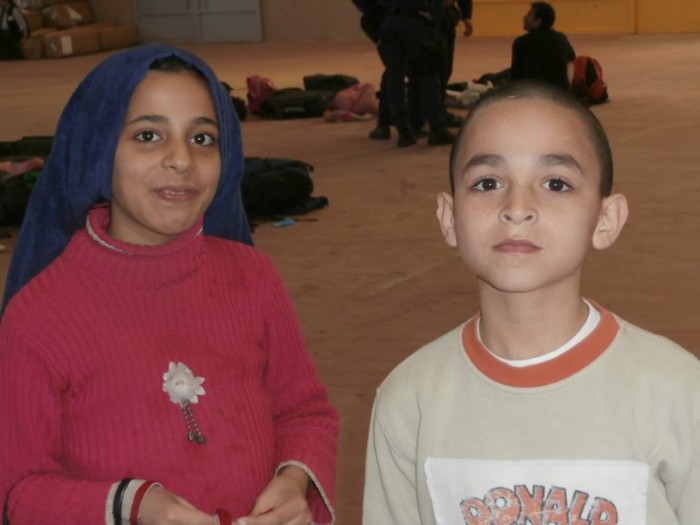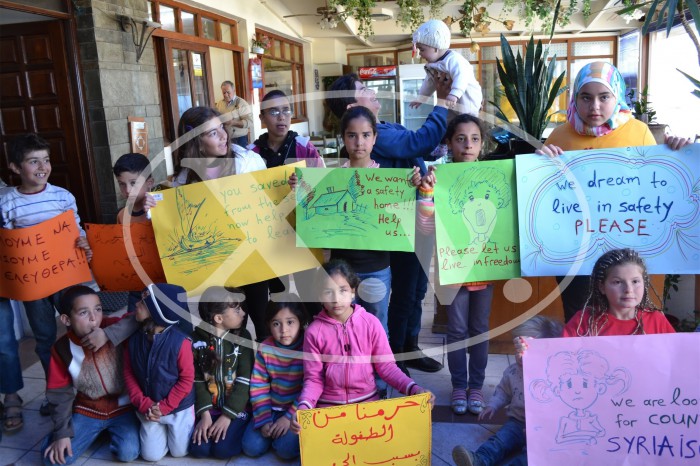Dear mum,
I don't often write to you because we often speak, albeit silently, but I thought it was about time I sent you a note which can stand as a testament in time for a future moment. Telephone/telepathic conversations don't get recorded (actually, they tell us on the news that all phone calls may be recorded nowadays, but I highly doubt anyone would be willing to sift through my ones with you, even if they existed, to help us recall the things we talked about), but writing things down in a computer keeps permanent records of everything. It's a highly connected world now, mum, so long as you can use a computer. Would you believe it, I chat with
The Little Laughing Olive Tree every day, and I don't even pay a single cent? Actually I chat with people all over the world, even people I don't know. It's all got to do with that telephone that you would ask me about every now and then, the one where you can see the person you are speaking to. It's been invented now, mum (like that train we once heard about on the news which will go under the sea and connect England with France - I've even taken it).
I've just finished cooking most of my Easter delicacies, and I've now sat down with a cup of coffee to write this letter. I had the kids help me, just like I helped you to make all these things. Easter is one of those times when I really want to make all the traditional festive meals, probably because I remember making them with you, more than anything else. You know how much time kalitsounia take to make and how little time they need to be eaten. But I make kalitsounia, and koulourakia, and kreatotourta, and red eggs, and avgolemono (they call it fricasee here), because I know how much the family loves to see these foods at Easter. And just like you, I don't spoil them by making all these cholesterol-laden goodies all year round, which makes them appreciate them even more, I suppose. (Unlike you though, I don't have fat kids. There really was no need to tell me to eat all the potatoes you put on my plate before I ate my lamb chop, especially in 1980s NZ where half a side of a lamb cost just 20 NZ dollars, and there were someting like 20 sheep for every person in the country).

I don't cook the quantities that you did, but not just for health reasons. You see, even though I live in Kriti, and I am related by blood and marriage to so many more people here than I ever could count in NZ, I don't often get the chance to pull all the little families that make up our extended family together, like you did back in NZ. People here all have their little
παρέα, and their festival customs, which isn't a bad thing. But it's very hard to penetrate those little circles that each group creates, especially now with that thing called the crisis.

You've probably understood something about the crisis, that it's a really bad thing that has cast a curse on Greece, and people are suffering, but if you are watching any of it (you don't have TV up there, do you?) you are probably wondering what it's all about, because it isn't like sickness and disease, or war with guns and bullets and blood and invaders. If I remember rightly, you never saw much of that anyway, even though you were seven years old when the Battle of Crete took place, because the invaders didn't quite manage to get as far as your mountain village. But dad saw lots of that (please show him the letter - I don't know if he's living in the same quarters with you, and I bet he spends a lot of time with his brothers and sisters now that they have all joined him up there, but no doubt, you see him), because he lost his father in the war, and so did my husband's mother (but she really doesn't like to talk about it much - her (mutual to you) grand-daughter has to do a school project about it next week, which involves recording her grandmother in an interview about what happened in those days, and I really don't know if she will agree to it. Θα δούμε - I may just have to help her along a bit on that one: as I mentioned to you above, it's all recorded on computer).
A lot of people do often say that things are not better now and they were better in the past, but I don't believe that at all. For a start, I don't have to work as hard as you, mum. In fact, I don't see anyone here working as hard as you and dad did. Apart from milk, food isn't expensive here (I think it's more expensive in NZ these days). We are free to believe what we like and do as we like, as long as we do not break the law. And unlike in the Greece of the past, you get caught so much more easily these days if you break the law. It's all got to do with the invention of the computer. That's a hard one to explain, but it's like you're being watched all the time, and if you really want to break the law, you need to be really deviant, so that eventually you get caught out as the nooses tighten. It wasn't like that when you were living in Greece, but the past is over and done with. It's all to do with the crisis.
The crisis is difficult to explain. The word 'κρίση' generally has a negative meaning, so you know it's something bad. I liken it to climate change. You may remember my mentioning this to you every now and then. You probably thought of me as an eco-nutter back then, but it's been proven now that climate change is a serious threat to the whole world, perhaps the most serious threat of all. Suddenly it's really cold or really hot unexpectedly, and you have to learn to adjust to these new extremes. For example, you may be flooded one day and the next day there may be a drought. That's like the crisis which goes something like this: sometimes you have a lot of money and you can spend it on anything you like and you don't even have to save it because there's more of it coming where it came from, but sometimes you don't have much money at all and you can't even make ends meet to pay your living expenses. So if you create reservoirs that don't flood, and can always be kept full, you are saved from the climate change crisis. Likewise, if you can limit your spending, change your habits and above all stop grumbling, you are probably saved from the worst.

Everyone has been affected by the crisis. So we can say that we are all in the same boat. Suddenly, we have all become one and the same. That's one of the outcomes of the crisis. I think it's a good thing, but most people around me are always mumbling about how bad it is. Well, it's bad if you live in a place where you can't even grow your own herbs, or if you can't get used to living with less. Most people are in this category. They were used to having most things done for them by others. Admittedly, some people are worse off than others. But even in poorer times, Greece still lets people who haven't got much money avoid paying their daily expenses. I know people who don't pay any of the taxes we pay because (on paper at least), they are considered poor - they don't even pay their electicity bills. And most people with loans have not had to repay them - I know plenty in that category too. And they know how and where to get more monetary benefits. Don't think that this applies to me and my family: we don't receive any benefits, we pay all our dues, and above all, we try to maintain our dignity.
To my advantage, as the tax-paying Greek, prices have dropped, and I don't waste anything, and I mean nothing at all: I have a place to store plastic bags, a place to store rubber bands, used paper (I don't mean toilet paper - I mean paper for printers: you need them for the computer). And the most important outcome of all is that there is more solidarity among Greek people. People are more sharing and caring nowadays. My kids remind me every now and then to give them a packet of makaronia or beans to take to school, which collects on behalf of the community grocery, and I always give away the kids' clothes when they don't fit them any longer, just like you did, when you sent them to your nieces in Greece. People gives us things, and we give things to them. But it's not about things: we share a lot more than just tangible items than we ever did in the past.
I really don't think the mumblers have good cause to grumble so much. The only ones that do have a good reason to complain are those that don't have jobs. But as I told you above, there is greater solidarity on the part of the government to help these people out. Admittedly,we would all like to be helped even more than we are now, but I think that's just asking for someone else to pay for everything. Most Greeks are mainly annoyed about the taxes they have to pay, which they weren't used to paying in the past. Even people outside Greece also mumble about the Greek problems, because they are afraid that the same bad times in Greece are coming their way. The whole world now uses Greece as a reference point. You hear people from other countries saying things like 'We don't want to become like Greece." You could say that Greece has become the feared μπαμπούλα you used to warn us about. But Greeks have shown that they have managed to get over the crisis in some way, and this is even more alarming to the non-Greeks, because it is proof that they may have to undergo a similar makeover. It's the same everywhere now, mum.
But seriously, mum, things are getting better, and they will get even better. You know how much better your life was than your mother's and I can guarantee you that my own life is better than yours. And I really believe that your grandchildren's lives will be better than their parents'. Crises of various sorts come and go; there was never a period of no crisis, life has always been an uphill battle, with different difficulties for the many different people that exist on earth. (And yes, the earth is STILL the only place with human life. We haven't yet come across people from another planet, and there was no man on the moon after all, like you insisted, despite the many advances in science that help us to find out more about the universe. Sadly though, there is still no cure for cancer.) And all crises come to an end. If they didn't, then the world would end and the human race would die off eventually. Money can't buy eternal life.
Don't worry, we aren't starving. How could we when you can see kalitsounia, koulourakia, kreatopita, avgolemono and red eggs on my table? We'll never starve here, I can guarantee you that, as long as no one comes along to take the food out of our mouth. There is plenty of food to go round for everyone in greece, and good qaulity cheap food too. We're now being extra cautious that no one will take the food out of our mouths, too. Ever since my husband fenced off his orange field in his village (unlike all the other fields around it), we have realised that it produces many more oranges that we originally thought. We're even giving them away (I trade them with a friend for her fresh eggs).
Oh, and look, while I was writing this letter, I was reading this newspaper article (I don't have to buy the newspaper in paper form anymore. I read it on the computer, at about the same price that it would cost me to buy the paper version. And what's more: I can read any number of papers that I want every day, all for the price of one. And I even write one myself, and people all over the world read it!), which said this:
In the past few days we have witnessed an effort to change the climate, to make it appear the crisis has ended and that Greece is making a leap toward normality. The primary surplus and the five-year bond sold to international investors raise the hope that our creditors’ harsh grip will loosen, money will flow into the real economy and the country will recover. These developments, along with words of encouragement from foreign officials and some publications, play a positive role in improving the climate. It is the light at the end of the tunnel for which we have yearned – and sometimes even the illusion of light leads us toward it. http://www.ekathimerini.com/4dcgi/_w_articles_wsite3_1_17/04/2014_539074
It's really all about whether you see the cup half empty or half full. I definitely don't see a full cup, but I think that the glass holds just enough for my needs at the moment. I keep trying to keep it half full. As soon as I see it emptying, I pull the reins in the house. I'm the boss in it, just like you were, and everyone knows that. Even at work, my opinion counts more now. It's the crisis, mum; things are falling into place.
It's been really cold lately. It even snowed last night on the mountains, your mountains, the ones where you were born. I don't know how lucky we will be to manage to get the Holy Fire home to us, but I really don't bother with this mumbo-jumbo anymore. At least this year, Greek Easter falls on the same day as the Catholics', so when the Pope comes on tv (they show him on the news in Greece too), and says 'Christ has risen', he won't be lying. Anyway, why do I need to bring the Holy Fire home with me, when I don't even light a kandili? I'll never forget that time when one of the kids dropped the candle in the car. I am not prepared to go through that again. I can't afford to buy another car right now. And anyway, we're modern people, mum. I don't tell my kids to fast, I don't force them to go for Holy Communion, they get to the kalitsounia and koulourakia well before Easter Sunday, we don't dress formally, we have Turkish friends, we have gay friends. We aren't regular church goers like in NZ, but I think that's because we go to church here for different reasons compared to NZ. For a start, we don't need to go to church here in order to feel a sense of Greekness and catch up with the other Greeks, like we did back in NZ. We are Greek, we already know that, and we don't need to prove it to ourselves.
 |
| Galatas, Easter service, 20th April 2014 |
OK, I better sign off now, mum, because I'm talking politics, sex and religion, which you don't like to talk about or question. Anyway, it's nearly time to get ready for the Holy Fire thing tonight. When we do go to church, we always prefer the church where we know we will bump into our extended family, so I'll be seeing your brothers tonight. I've also talked with your sisters, and they are all fine. If they knew how to use a computer, I'd talk to them every day too, like I do with The Little Laughing Olive Tree, so I have to limit my call times with them. But they never forget me, and I hear from them often. They are like substitute mothers. (I thought you'd like that. I mean, I call my mother-in-law 'mama', but we don't share much with each other. You may not know what I mean because you never had to live with your mother-in-law. But it's really quite OK.) And your grandchildren are fine too. At the moment, they are downloading music for their dad to play in the taxi. (We don't use tape recorders anymore - we take them down from the computer.) They don't know much about you, to be honest, because they don't quite understand how it came about that I was born in NZ and I call myself Greek. Sometimes they ask me if I am actually Greek. So I suppose I could say that they are cottoning on to something that they will understand a little better when they grow up.
Happy Easter, mum, and dad, of course. We'll talk again soon. Bye for now.
UPDATE: Good thing I haven't posted the letter yet. I've updated it with some family photos. Here's what we looked like last night.
©All Rights Reserved/Organically cooked. No part of this blog may be reproduced and/or copied by any means without prior consent from Maria Verivaki.

 This house is clearly lived in by the house-proud owners.
This house is clearly lived in by the house-proud owners.









































